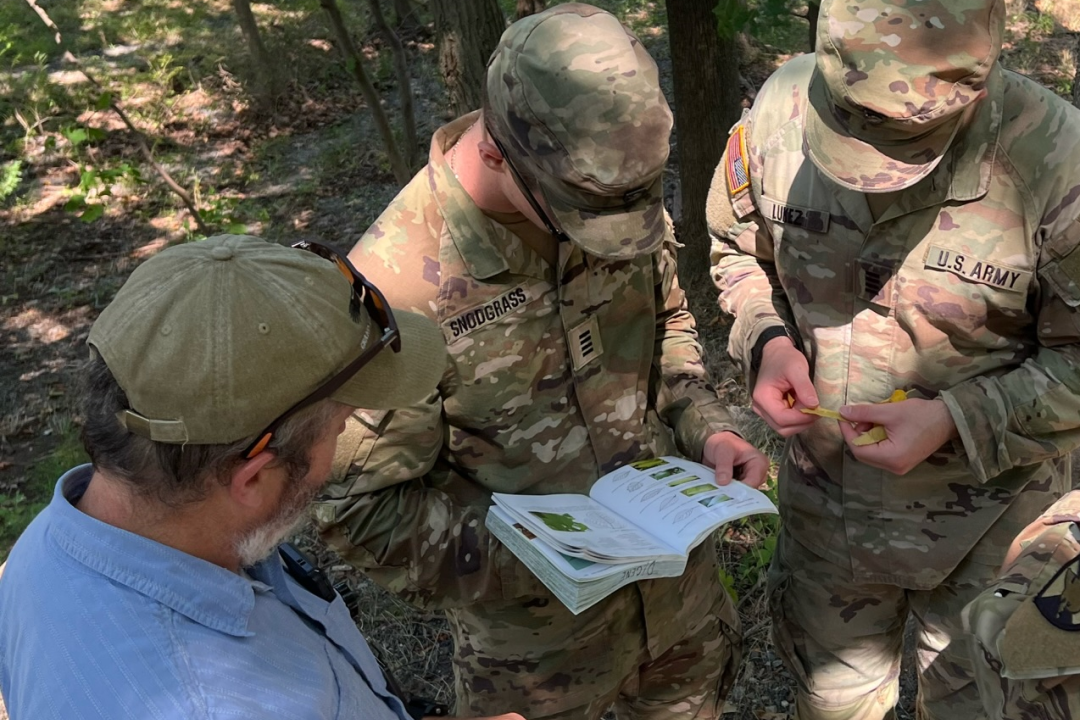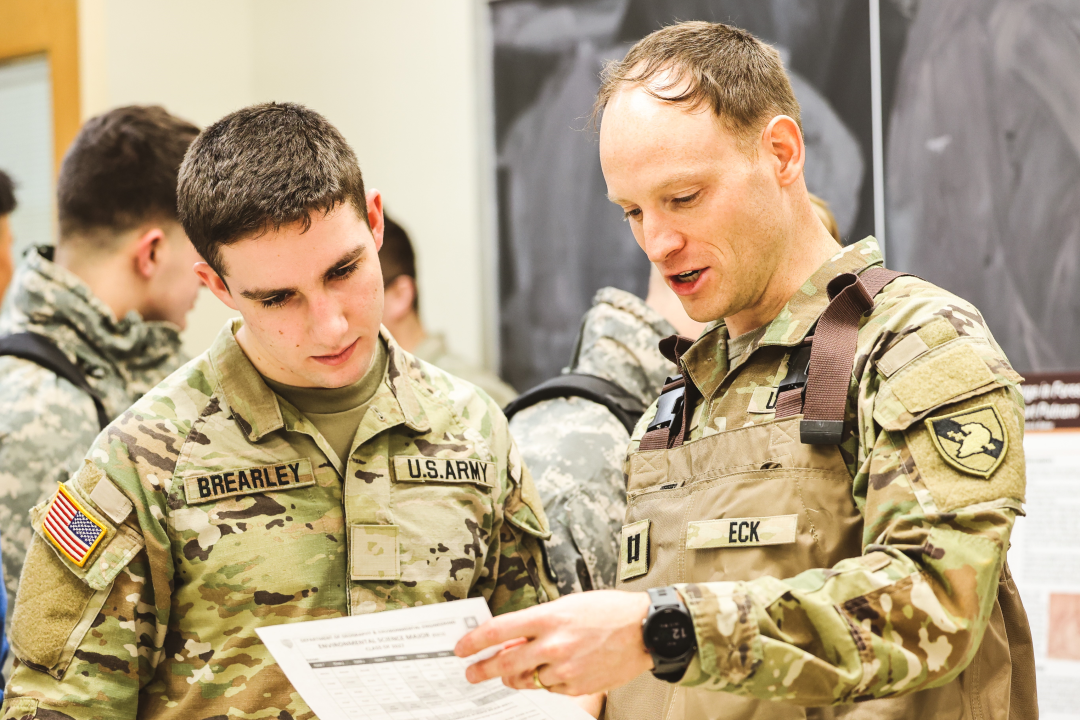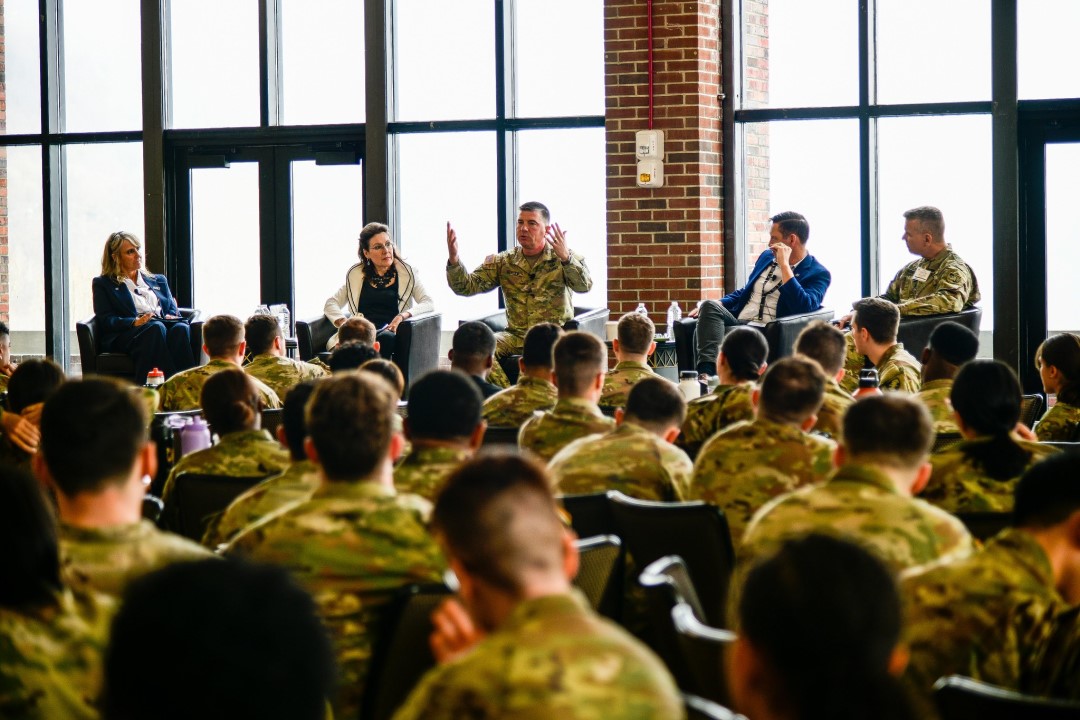
The Department of Physics and Nuclear Engineering (PaNE) is looking for future military faculty that embody excellent character and the ability to mentor cadets both in and out of the classroom; have a history of superb performance as an Army officer (the officer must also be capable of being KD complete by the spring 2024); and the ability of the officer to earn a degree in physics, nuclear engineering, or a closely related field.

The department continually seeks talented faculty who are experts in the disciplines that comprise our majors and minors – nuclear engineering, physics, space science, nuclear science, photonics – and are committed to enhancing the education and development of cadets.
All first-year instructors begin by teaching in the core physics program, which is responsible for Physics I and Physics II. From there, you can either remain in the core as a course director or branch out to the nuclear engineering, space science, or advanced physics programs according to your background and interests.

The Department of Physics and Nuclear Engineering's research centers offer a robust selection of research, scholarship, collaboration, and professional development opportunities to help our faculty remain at the forefront of their disciplines.
Application Packets Due by Nov. 1
Start your TEACH application (CAC-Enabled)
Rotating military faculty consists of of active-duty captains, majors, and lieutenant colonels. An assignment to West Point as a rotating faculty member requires officers to submit an application through the CAC-enabled TEACH system.
Core Physics
Major Beemer Interview
Nuclear Engineering
Major Arauz Interview
Core Physics
Major Ecklund Interview
The only definitive timeline requirement is that you must complete your CPT KD assignment prior to attending graduate school. Aside from that, everyone's timelines are unique. To discuss your specific timeline question, please contact PaNE Faculty Recruiting.
Most are, but in the past waivers have occasionally been granted to truncate an assignment to two years, or to grant a fourth year.
All first-year PaNE instructors begin by teaching in the core physics program, which is responsible for Physics I and Physics II. From there, you can either remain in the core as a course director or branch out to the nuclear engineering, space science, or advanced physics programs according to your background and interests.
Your first summer at West Point will be spent in a rigorous new instructor training. As part of this program, you will get many opportunities to teach classes in Physics I and receive feedback from your peers and other experienced faculty members. This program has historically done a great job in producing competent and confident instructors.
We've had instructors transition from many other STEM disciplines, as well disciplines outside of the traditional STEM fields such as history. If you have a passion to get a graduate degree in one of our disciplines, we will work with you!
For any other questions about joining the PaNE faculty, please email our faculty recruiting inbox.
The mission of the Department of Physics and Nuclear Engineering is to educate and inspire cadets through physics, nuclear engineering, and space science coursework and research, and to support the West Point Leader Development System so that each graduate is a leader of character prepared for a lifetime of service to the Nation as an Officer in the U.S. Army.
It takes a team to ensure the U.S. Military Academy at West Point can fulfill its mission to educate, train, and inspire the Corps of Cadets. There are roles for military and civilian faculty to teach cadets and for those both in and out of uniform to ensure the systems and processes required to operate a military installation and college campus are in place and running efficiently.